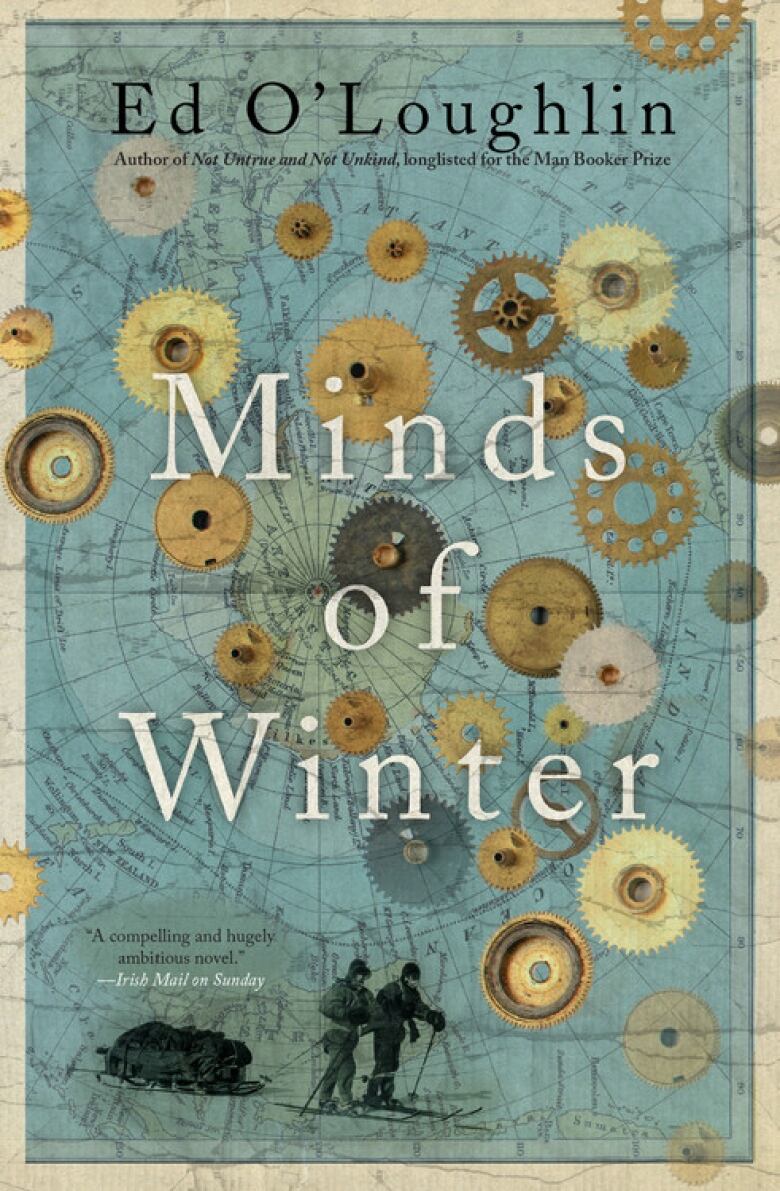Ed O'Loughlin reignites love affair with Canada, snow and maps for new novel
Childhood memories of tobogganing in Edmonton and a fascination with Arctic explorers inspired the book

One of Ed O'Loughlin's earliest childhood memories is of wiping out on a toboggan on a snowy riverbank in Edmonton.
Born in Toronto and raised in England and Ireland, O'Loughlin says that memory started his fascination with snow and helped inspire his novel, Minds of Winter, a historical mystery that weaves its way from Alberta to the Antarctic.

O'Loughlin says buying a copy of Pierre Berton's The Arctic Grail at a Toronto Pearson International Airport book store sparked his interest in Arctic expeditions and set him on the path toward writing Minds of Winter.
The novel, nominated for the 2017 Giller Prize, revolves around two strangers' connections to Sir John Franklin's Northwest Passage expedition and a mysterious relic that turns up in the U.K. more than 100 years after it was supposedly lost in the Arctic.
In an interview with Russell Bowers, the Irish-Canadian author told Daybreak Alberta how the pole-to-pole adventure was an opportunity for him to return home.
The following is an excerpt from that interview:
Q: What was the genesis of this book?
A: As I read it, I began to realize more and more I was writing about my own childhood and aspects of my past that I'd kind of forgotten, particular early childhood, which of course, seems like a dream time.
I wrote a book about polar exploration because I remember my dad took me and my big sister tobogganing… and we were very happily tobogganing down when some bigger kids in a tractor tire came crossways across us and cleaned us out.
We thought this was fantastic, but my dad got panicked and kind of took us away and we never got on that toboggan again because shortly after that… we moved away to places where you don't get a lot of snow.
Q: Your formative years were in Ireland, but how much of Canada do you think stayed with you for this book?
A: The original idea wasn't to write a book about Canada. It was going to be one of the settings, looking at both poles, but Canada kind of took over, in part becasue I came here to do the arctic research.

I felt very Canadian when I moved away as a child. It's difficult to move countries when you're young… and I had a very strong Canadian accent so I got followed around the playground with people calling me 'Yank.' That's the most Canadian you can be, isn't it?
Q: How much of the book is you writing the story, and how much is the story picking you?
A: The historical characters that are featured — the explorers — generally have one thing in common, which is that they disappeared, they didn't come back and nobody saw what happened to them.

The book kind of blurs the boundaries between life and death and truth and fiction. And I thought the poles was a very good place to do that because they're blank spaces. We know what's up there now, but they are almost in a sense the last blank spaces on the map.
I went with them because I thought, if you've disappeared and if nobody saw you die… maybe they're still up there.
Q: How did maps jumping-off point for the story?
A: I'm fascinated by maps, like a lot of people. I particularly loved looking at maps of Canada because of all the great place names.
Mapping is a metaphor for life. We start off not knowing where anything is and by the time we get to the end of it we probably do, but do you really want to get to the end of the map?

And one of the questions I'm trying to ask in the book is, you know, 'do we not lose something when we fill in the map?'
Minds of Winter, the third novel by Ed O'Loughlin, is nominated for the 2017 Scotiabank Giller Prize.
He lives in Dublin with his wife and two children.